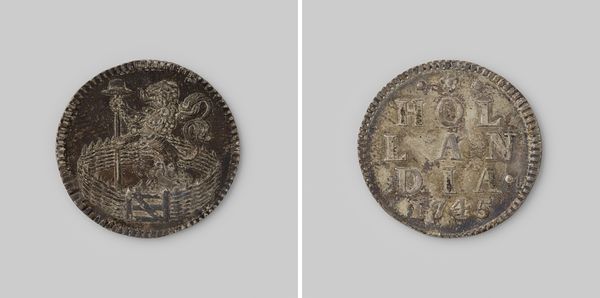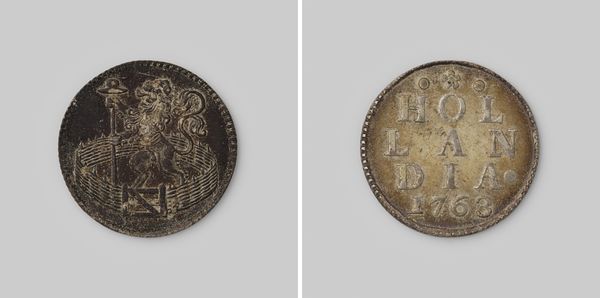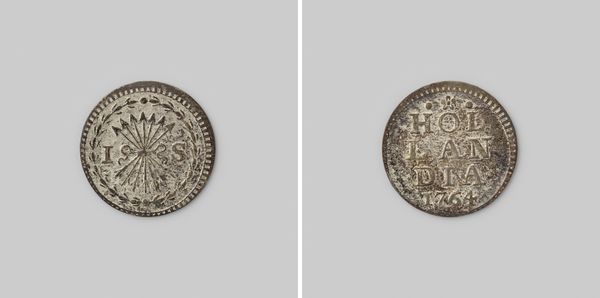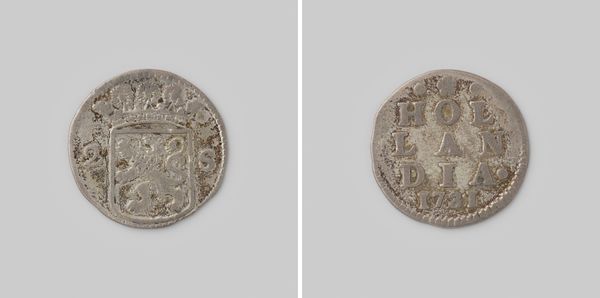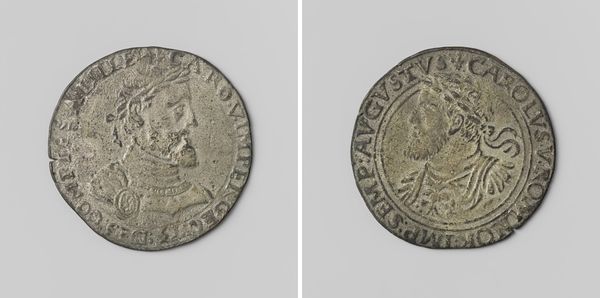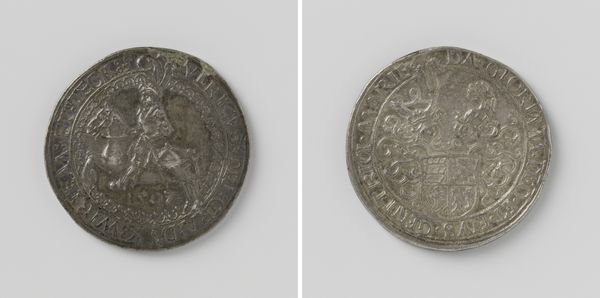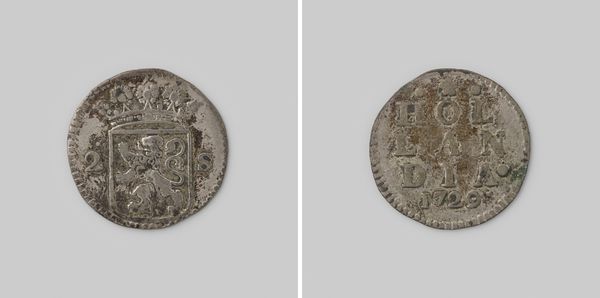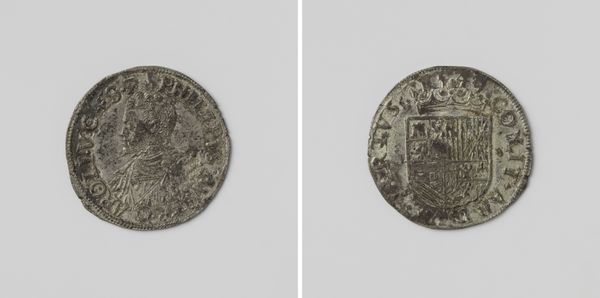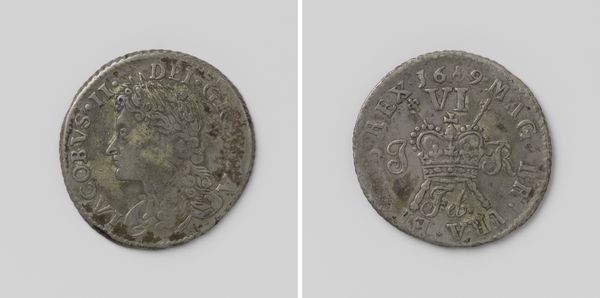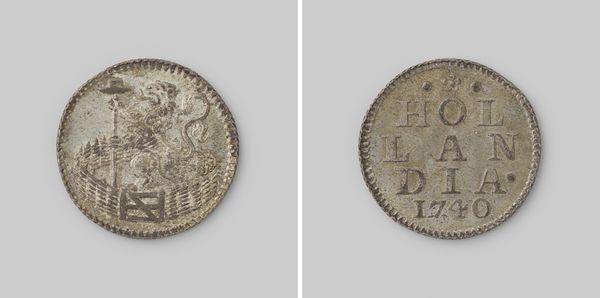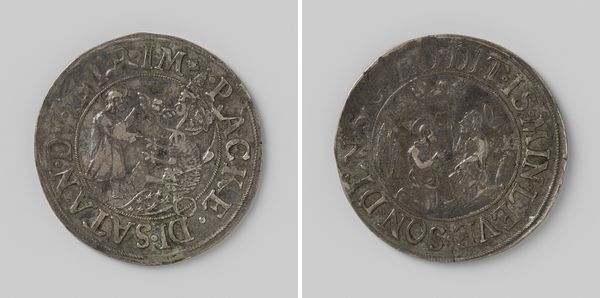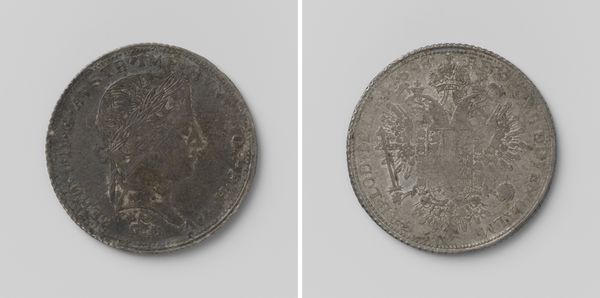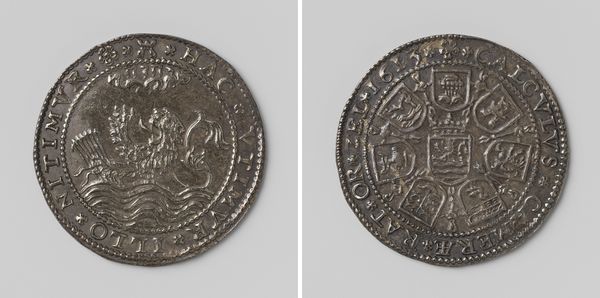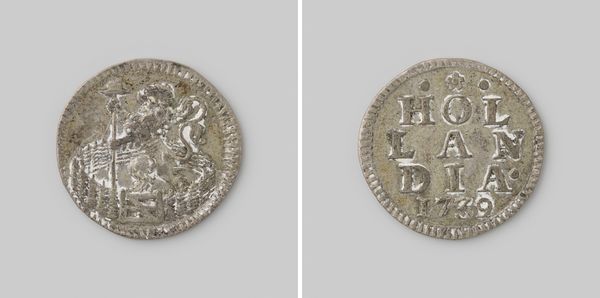
silver, print, metal, relief, engraving
#
silver
#
baroque
#
dutch-golden-age
# print
#
metal
#
relief
#
geometric
#
coin
#
engraving
#
miniature
Dimensions: diameter 2.2 cm, weight 3.41 gr
Copyright: Rijks Museum: Open Domain
Editor: Here we have a silver Hollandse duit, or Dutch penny, from 1702. The coin is so small, and at first glance, its symbols feel dense and a bit hard to decipher. What stands out to you about this coin? Curator: Well, consider this seemingly insignificant coin in the context of the Dutch Golden Age. The meticulously engraved symbols – the lion, the geometric forms – are all assertions of identity and power. What story do you think the coin tells us? Editor: I guess the lion projects strength. But is that really *Dutch* identity? Curator: Exactly! The lion isn't just about power; it's about a very specific *kind* of power claimed by the Dutch Republic at that moment. It's a constructed identity meant to convey a particular image both internally and to the world. These images acted as a visual language for commerce, civic pride, and national identity in an era defined by colonialism and mercantile expansion. Even its diminutiveness speaks volumes. Think about how something so small facilitated global trade. Who do you think benefited most from this trade? Editor: I never really thought about coins in terms of political messages and the wider inequalities of the period. That’s eye-opening. Curator: It’s about looking beyond the surface, beyond just its monetary value. Seeing the layers of meaning embedded in such a commonplace object allows us to critique the power structures of the past and consider how they influence the present. Editor: I see the coin in a completely different light now. I understand how an object that appears so simple embodies such complex power dynamics and assertions of identity. Curator: Indeed. Small objects, like this coin, often carry the largest historical burdens.
Comments
No comments
Be the first to comment and join the conversation on the ultimate creative platform.
